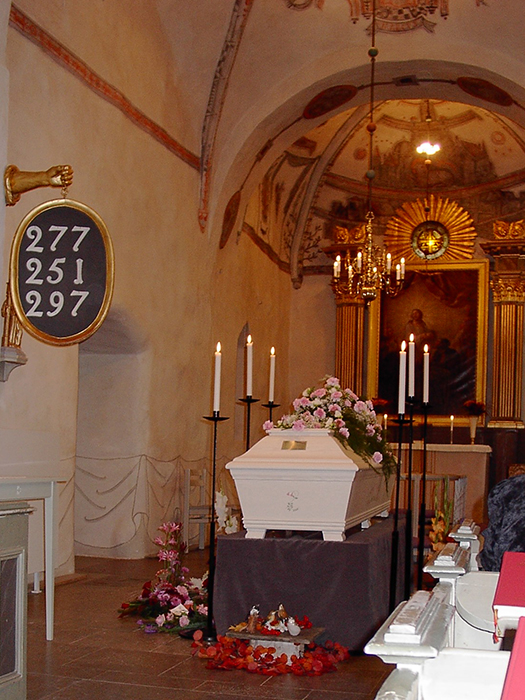父親を亡くしたばかりの女性が目を逸(そ)らしながら言う。「先生はうちの父をあまりご存じではなく、それに先生はお若いですし」
[toggle]“Well, you haven’t really been here long enough to know him that well …” She breaks eye contact. The sentence dangles, but the meaning is clear: “You don’t know my dad well enough to do his funeral. Plus, you look really young.”[/toggle]私は深呼吸する。誰かが亡くなり、遺族と対面するとき、同じようなことをよく言われるのだ。亡くなった方の親友でなければ、ちゃんと葬儀の司式ができないかのようだ。
[toggle]I breathe deeply. Nearly every time I gather with a family, I hear a similar impulse: that being the person’s best friend is what it takes to lead a funeral well. [/toggle]「ええ、お父さまとお付き合いがあったのはここ数年だけでした。お父さまのお話をいくつか聞かせていただけますか。礼拝ではもちろんお父さまのことをお話ししますが、あくまでもキリストの復活の光に照らしてお父さまの人生を語ります。それこそ、ご葬儀に皆が集う理由ですから」
[toggle] “You’re right. I’ve known your father only a few years. Is there someone who could tell a story or two about him? It could be family or someone else who has known your dad for a long time. I’ll speak of your father during the sermon, of course. But there I’ll focus on his life in light of the Resurrection. That’s why we’re gathering.” [/toggle]葬儀に伴う悲しみの感情を無視して、一足飛びに「亡くなった人に与えられた人生を喜び祝う」場にしてしまおうとするより、この女性の悪気のない反応のほうがまだましだ。しかし、女性が言っていることは、「葬儀の持つ意味が正しく理解されていない」という、もっと深い問題の表れにほかならない。
[toggle]This person’s well-intentioned impulse ranks just behind the instinct to ditch the whole “funeral” vibe and go for a “celebration of life; he wouldn’t want us to be sad, anyway.” But it all hints at a deeper problem—a confusion about the purpose of funerals. [/toggle]問題は、もはや葬儀が礼拝ではなく、遺族や親しい友人が悲しむための私的な集まりと見なされることにある。葬儀が、「亡くなった人と親しかったら参列すべきだが、そうでないなら別に行かなくてもよい」というものになっているのだ。しかしキリスト教葬儀とは、「キリストの復活」というもっと大きくて深い真実を思い起こすために集まる場であったはずだ。
[toggle]Here’s the problem: We no longer see funerals as worship. We see them as private, sad gatherings for the family. We see them as important if you were close to the deceased, but otherwise, let’s be honest—you’re not missing anything by not going to Merle’s funeral. Funerals are sort of like gloomy birthday parties, deeply personal get-togethers for close friends and family.But we are here to recall a wider, deeper reality, nothing less than the crux of the cosmos: Christ’s resurrection. [/toggle]
キリスト教葬儀は、重要な礼拝だ。葬儀は、キリストの復活とその希望を思い出させるものだからだ。キリスト教葬儀は、死というものをまだ遠くに感じている人たちに、死が存在することに気づかせる。そうすれば、その人に死が近づく時、死(の恐怖)に取りつかれることはない。私たちの一人がここにいないから、私たちはここに集まる。私たちは(その人が亡くなったという)事実を確認するために集う。そして、ほかの一切のことに打ち勝つ神の真実を思い出すのだ。
[toggle]It is the memory and hope of the Resurrection that makes the Christian funeral one of the most potent services of Christian worship. The Christian funeral is uniquely positioned to help those far from death attend to it, so they need not obsess over it when it is near. It is unmatched in its focus: we are here because one of us isn’t. We gather to realize this reality and to remember God’s reality, which trumps all others. [/toggle]葬儀が教会全体による礼拝ではなくなり、家族以外をシャットアウトした行事になってしまうと、それは個人的な好みの問題へと変質してしまう。葬儀は(亡くなった人の)自己表現の道具、この世に自分の痕跡を残すために最後に悪あがきをする場となり、神の民が形作られる機会ではなくなってしまうのだ。しかも、葬儀がこのように変質することを牧師自ら助長していることも少なくない。
[toggle]When the funeral becomes a cordoned family affair, it degenerates into a matter of personal preference. It becomes a vehicle for self-expression, one last gasp at leaving one’s mark on the world. When it ceases to be congregational worship, it ceases to be an event where God’s people are formed. Too often, pastors lead the way. [/toggle]そこで悪循環が起こる。葬儀が礼拝でなくなり、「友人や近親者など、『葬儀を本当に必要としている』人のためのもの」とされてしまうと、葬儀に参列する理由が説得力を失う。礼拝として教会で葬儀に参列するより、「葬儀場に行ってご遺族にお悔やみを言うほうがよい」と思われるようになるのだ。このようにして葬儀が礼拝の中で最も教会色の薄いものとなってしまうことを私は経験してきた。(次ページに続く)
[toggle]It becomes a vicious cycle. When the funeral isn’t worship, there’s no compelling reason to go. When the funeral isn’t worship, your time is better spent paying your respects at the funeral home, where you can interact with the family, share a memory or two, and be on your way. This is why the viewing at the funeral home usually beats the funeral in the popular vote. The funeral is for those who really “need” it—friends and close family. And so the funeral becomes, as it has been in my experience, the least congregational service that I lead. [/toggle]1
2